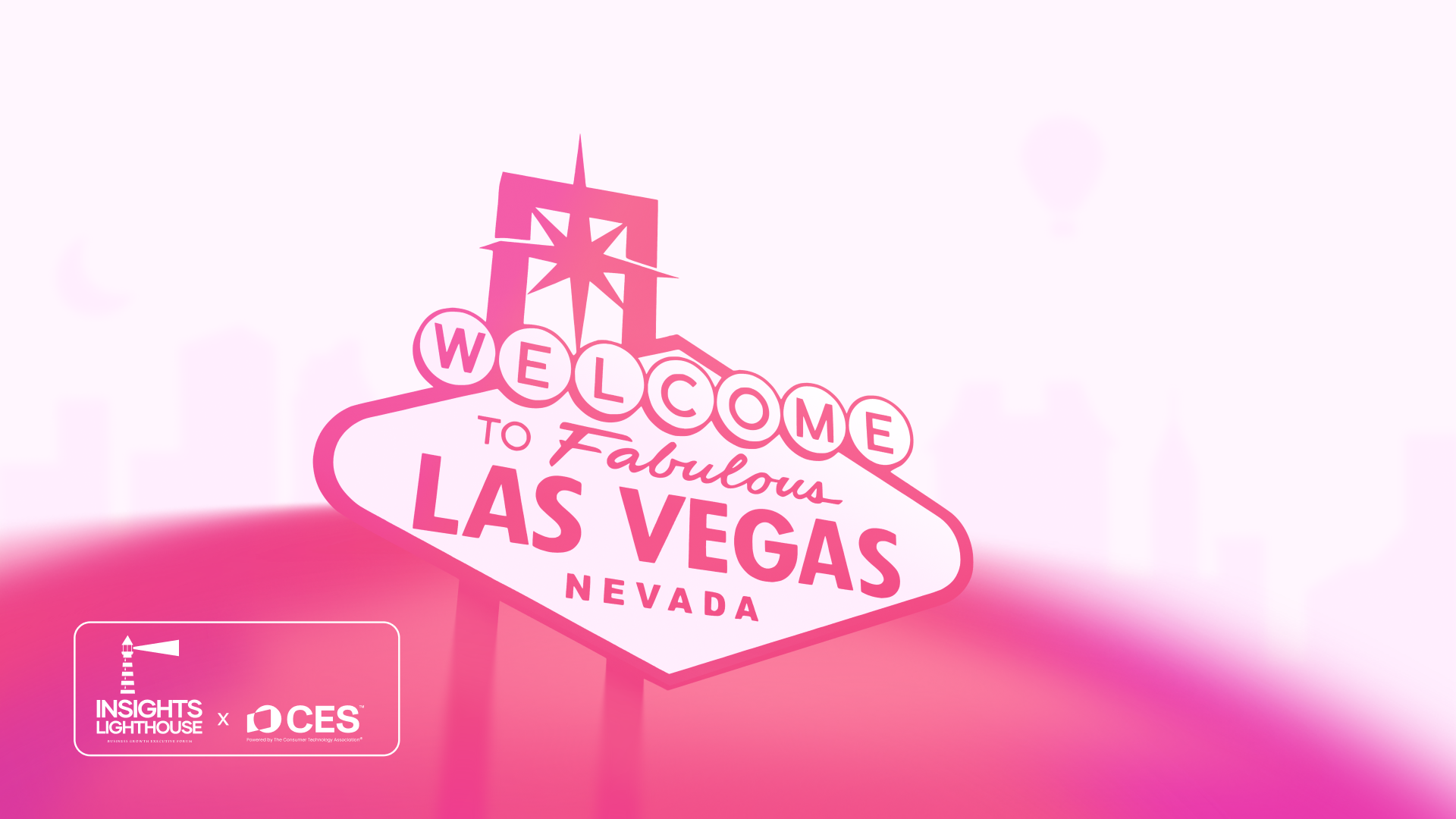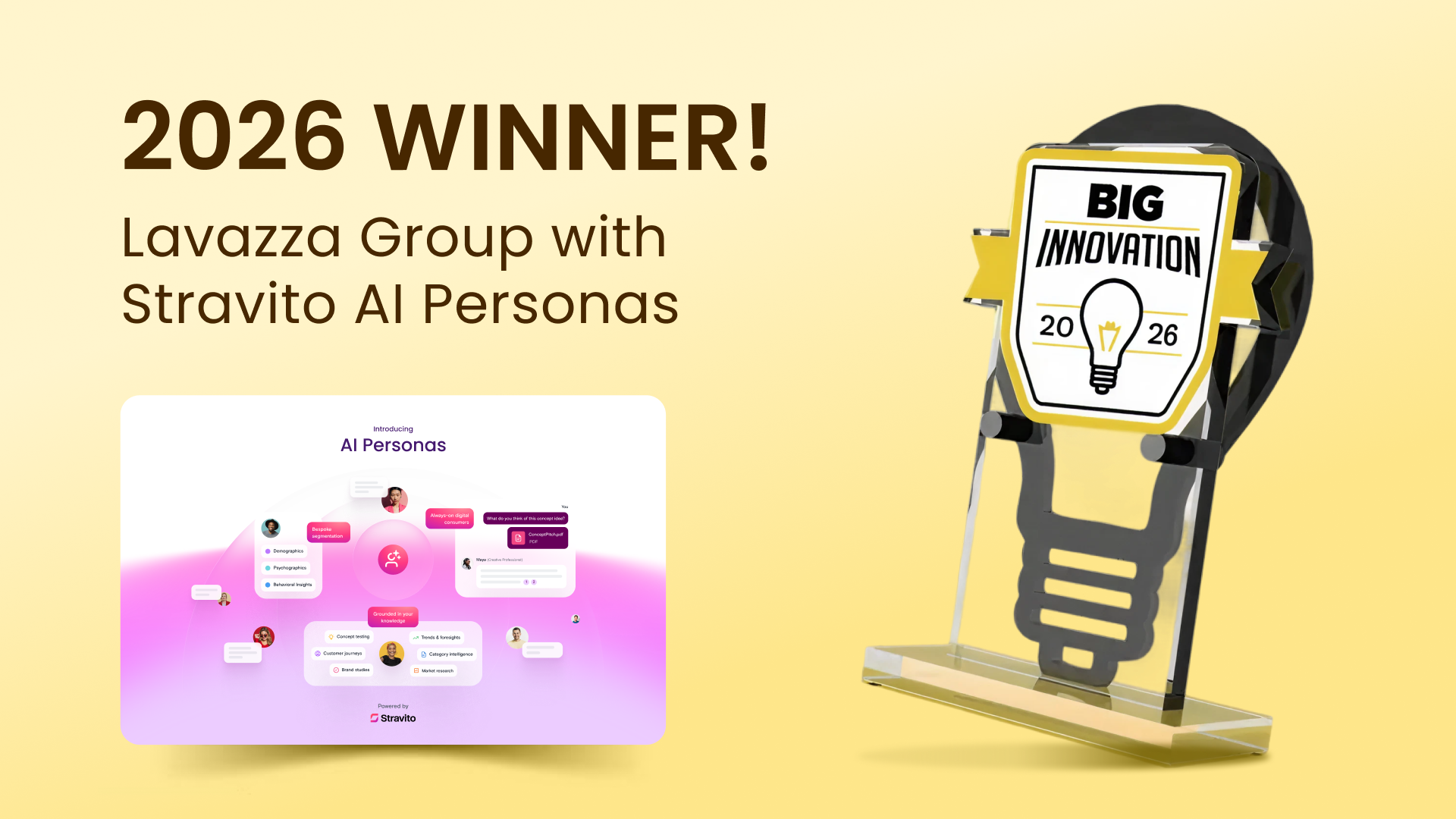In this episode of Spotlight, Stravito CEO Thor Olof Philogène spoke with Cristina Kenz, Chief Growth Officer at Kraft Heinz International, about strategies for igniting growth. Cristina has over 20 years of experience in leadership positions at iconic FMCG companies, like PepsiCo, Danone, and most recently Kraft Heinz. In her new role, Cristina is responsible for setting international strategy, driving innovation, and building capabilities across the Categories, Marketing, insights, Brand Building, and R&D teams.
Listen to the full interview, including a live audience Q&A, here.
T: We had a series of preparation calls, trying to get an idea around how we could best center in on this topic. I remember you mentioned how you really dislike or even hate bureaucracy, that if an idea has to go through 5 filters, you said that then there’s something wrong. What experiences have taught you that?
C: You have to imagine–if somebody in a country has an idea. Let’s imagine that they want to make a ketchup with basil: Let’s imagine it’s a trainee in Italy. It’s a great idea, but how will he sell that idea? He has to sell it to his manager, and then his manager needs to put it into some kind of powerpoint, then present it to the category leader, then he has to go to international, they have to say yes, then they have to go to someone else, and so on...this is what you need to avoid. You need to avoid an organisation where your forums and the ways you create firewalls for ideas get them diminished. So you need to create systems, and you need to make sure that you listen very intently to the whole organisation. And that’s something that I’m still trying to understand how to do in my current set-up...as an international CGO, who is sitting in one place. Because otherwise you miss voices–trainees, young people, anyone in the organisation, they don’t need to be specifically young; everybody can have ideas, and it’s fun to listen to them, so that’s one part.
The other part that I can’t stand is, if bureaucracy means that you need to do presentation after presentation, powerpoint after powerpoint, especially in our current environment, you will stagger the conversation. I mean if the ultimate decision is always made by the same person, who is the highest ranking officer, you will stagger the organisation. So these are things that I think are very important to watch out for. It’s a leadership journey: we all need to make sure that we know what we want to change, establish a very good vision, and then allow things to flourish.
T: When you talk about that, the way I hear you describing it, I think it touches to a large degree on culture, and organisational culture. And since the topic of today is igniting growth, how important is organisational culture for growth?
C: I think it’s hugely important. For me, everything gets ignited by curiosity. Curiosity is one of the things that I love the most in my team and the people that I have around me. If you have curiosity and you really want to understand things, we live in a world where you can actually verse yourself in any category, in any market, just by going into Google analytics or exploring the web.
The other thing is that when you go to the store, you can learn a lot by looking at the different categories, and that’s only FMCG. I think the way you look at a lot of businesses, for example, Uber. They didn’t think about mobility, they thought about solving a problem. So I think everything starts with curiosity, and that we all have–regardless of the organisation. It's something that’s up to us, if we want to engage with our own curiosity and the curiosity of the people around us. So that’s the starting point. And then the organisation, as you were saying, has a lot of weight. And to me there are 2 different ways to look at an organisation.
"You can be an entrepreneur within a big company, but the company needs to allow that to happen."
If you look at big companies, big companies usually have an inertia, a way of operating, and also a lot of costs. And a lot of things that they need to have to happen to change. If you want to do something… you need to understand the top line, the bottom line. You need to really understand the whole matrix of a big company. If you really want to make an impact, if you really want to behave like an entrepreneur, you can. You can be an entrepreneur within a big company, but the company needs to allow that to happen. It needs to make sure that it gives space to them.
If you’re in a small company, you might feel that the entrepreneur part is checked off. Well, I have a lot of friends who are entrepreneurs, and basically what I see from them is that it’s fragile--it’s a very fragile environment. Costs are also an issue, and they’re not like the costs of a big multinational, where they say “If you can’t get to this margin you can’t launch this product.” Rather they have another issue. How do they drive the profits? How do they drive financing? How do they fuel growth? It's a different problem, but it’s the same kind of question at the end of the day.
I think one thing that really makes a change is how do the leaders make that happen. And that’s an issue and an opportunity in both small and big companies.
T: And those are absolutely cultural aspects and cultural assets that you can build. When you look at igniting growth, what would you say are the biggest enablers and the biggest blockers in your opinion for such a journey?
C: Growth in a company is a must. A while ago I did a little back-of-the-envelope figure--I don’t know if it is still right or not, but I calculated that a company that doesn’t grow between 2 and 3 percent falls into decline. And somebody could question those figures, but I’ll tell you the reason why I got to that number. Because basically, you have ongoing costs going higher...of course you can have people squeezing costs, but eventually if you don’t grow 2-3%, enough to cover overall costs and also a little bit more to make sure that you are still able to grow...it’s very likely that you will have to start cutting things. And at the beginning the first cut doesn’t hurt, and neither does the second. But then you have what’s called the salami effect. You’re going to get into a place where it’s going to hurt. You’re going to get to a place where you start handicapping your growth.
So growth is an absolute must, and I think to generate growth you need to start with the consumer. The first and foremost point is your market–how do the categories grow? Look at adjacent categories. This is the curiosity we were talking about before. You start from the consumer. Then you need to really understand who the key stakeholders are that you need to enable growth. And then, for me, it’s the people.
"Unless you have the right team behind you, unless you have a winning mindset, you won’t grow. And the winning mindset needs to come from the trainee all the way to the president of the company."
Unless you have the right team behind you, unless you have a winning mindset, you won’t grow. And the winning mindset needs to come from the trainee all the way to the president of the company. And it relates to risk-taking, it relates to making sure that you support the organisation, it relates to making tough decisions. A question that I like asking leaders is to choose between the top and bottom line.
And I know it’s an unfair question because the right answer is both, you need to grow at the top and the bottom. But I always enjoy listening to the answer because undoubtedly, if you’re put against the wall, if you really, really need to give an answer to the question top vs. bottom line, the answer has to be the top line. Because the bottom line you can fix.
If you have something growing, if your sales are growing, you will be able to fix that. If you go only for the bottom line, you will just continue, you will do a lot of pricing, you will do a lot of clever things. You can survive many years doing that if you are a big company, but eventually what you are punishing is your penetration to the consumer, your market share, your ability to sell, your impact with the customers, if you are punishing all that, eventually you will go to a bad place.
T: Very good, and you’re working at Kraft Heinz, and that’s obviously an iconic brand. And you’re now committing to go sustainable. Can you talk a bit more about that? How do growth and sustainability fit together?
C: For me, sustainability is an absolute must... And I think for us as companies there are seals that make it much clearer. Like I'm a big fan of B-corp. I co-led the B-corp certification in Spain for Danone. And what it teaches you is that you need to really be aligned throughout the whole company on what you want to touch to make sure that you make a positive change.
So when I received the offer to come to Kraft Heinz, one of the things that I said is that I want to handle sustainability and to be honest with you the company was amazed and they were very happy to open that. And when I walked into the company, I actually discovered that Kraft Heinz is much better on the inside. Like when you understand what they’re doing with plastic, with the types of food. Most of the portfolio in international is actually plant-based, which I never knew. I think it’s 92% of the portfolio that is plant-based, which is a nice KPI to have. And I thought okay, let’s build that.
"Your consumers, they demand that, and they’re doing well to demand that. Because we know that if we don’t do it as organisations, it won’t happen."
And the reason why I think it’s important is because it’s important for your consumers. Your consumers, they demand that, and they’re doing well to demand that. Because we know that if we don’t do it as organisations, it won’t happen. The big companies have a responsibility to make that change. It's important because the stock exchange reacts to it–there’s a value linked to the companies who do that. And thirdly, it’s important because we are all humans–we are only guests on this planet, so we better treat it well.
So for me, I will do whatever it takes to make sure that we continue our way into sustainability and that we get to targets that make us one of the leading companies in sustainability. It’s one of the things I think we have to do, all of us.




